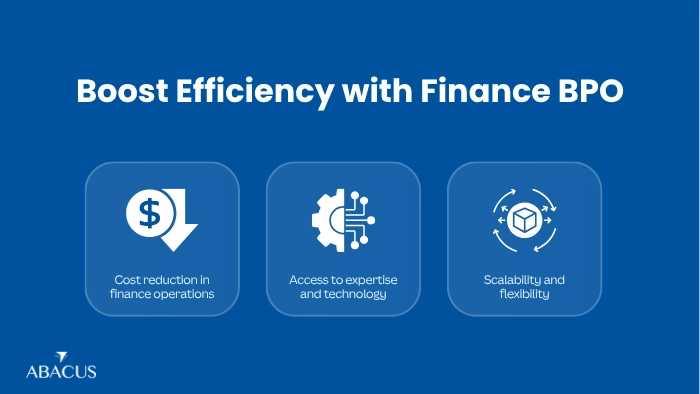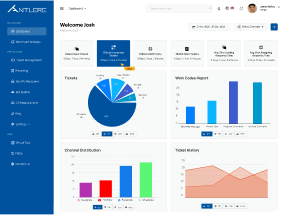Why Growing Businesses Are Turning to BPO Finance for Efficiency and Cost Savings
Picture yourself as the founder of a fast growing SaaS business. Revenue is climbing, customers are multiplying across regions, and your product roadmap demands every ounce of strategic focus from leadership. Meanwhile, Invoices get stacked up, payroll exceptions start to sneak in, and month-end closes start taking forever. And that entails whether you hire an army of accountants with expensive but inefficient systems that slow growth or team up with someone who specializes at maintaining the finance engine at scale.
More growth-stage businesses are opting for the latter. BPO finance outsourcing your finance and accounting processes to expert providers has evolved from a mere cost-cutting move into a vital strategic lever that increases speed, and accuracy, injects cash flow and reduces the total cost too. It provides a rationale for BPO finance, its suitability, and the appropriate timing to execute it, substantiating the argument with contemporary market observations and real-time experience.
What exactly is BPO finance?
BPO finance (finance and accounting business process outsourcing) encompasses a spectrum of back-office services: bookkeeping, accounts payable and receivable, payroll, tax compliance, financial reporting, and in some cases, higher-value functions such as FP&A and treasury operations. Depending on scope, providers that are delivering these services may refer to them as accounting BPO, outsourced bookkeeping services, or financial back-office support.
A large and growing market: back office operations in finance Analysts estimate that finance & accounting BPO segment generated approximately USD 64.9 billion in 2024, and further anticipate substantial growth over the next few years as companies pursue scalable and tech-enabled finance function.
Why growing businesses are adopting finance BPO (short answer: speed + expertise + cost)
There are three drivers sitting behind the shifter.

- Cost reduction in finance operations: Outsourcing of business functions produces quantifiable savings, according to independent studies. According to a study, enterprise saves an average 15% of cost savings from outsourcing business processes and also sees improvement in quality. That margin is the runway extension or the funds for the next product hire for so many growth companies.
- Access to expertise and technology: BPO Finance conglomerates invest in automation (RPA), optical character recognition for invoices, cloud ERPs, analytics platforms so that clients do not have to. Along with service teams focused on financial data management services, that tech helps accelerate accuracy and cadence of reporting.
- Scalability and flexibility: BPO partners are quick to scale resources up and down based on transaction volumes (seasonal sales, new market expansion) and avoid fixed-costs of permanent staff.
An accompanying business trends In 2024 global outsourcing survey similarly observes the growing presence of AI and “digital workforce” adoption into outsourced services enabling providers to provide both efficiency and analytical insights that took in-house teams time and money to develop.
Real business impacts: speed, cash flow and quality
The benefits aren’t theoretical. Typical measurable outcomes include:
- More efficient real-time invoice processing and increased early-pay discount capture,
- Reduce Days Sales Outstanding (DSO) via the disciplined outsourcing of accounts receivable.
- Shorter closing cycles and less reporting discrepancies for investors and auditors.
- Standardization of workflows, tax and regulatory experts reduce errors and compliance risk.
In another case study performed by WNS, clients migrating to outcome-based finance models experienced significant cost efficiencies and process efficiency gains lower transaction cost per invoice and improved DSO are some examples.
Typical Finance KPIs – In-House vs. BPO Finance
KPI | Typical In-House Range | Typical BPO Outcome |
Invoice processing time | 3–7 days | 1–2 days with automation |
Cost per transaction | $5–$8 | $2–$4 (volume dependent) |
Month-end close | 10–15 days | 3–6 days |
Invoice accuracy / exceptions | moderate | significant reduction |
DSO | varies widely | often reduced 10–30% post-outsourcing |
(Sources: industry studies and provider case reports)
Where BPO finance creates the most value
Some specific areas where outsourcing tends to deliver disproportionate ROI for growing businesses:
- Accounts payable outsourcing: AP is redundant & rule-based, a sweet spot for automation. BPOs blend together vendor portal, invoice OCR and approval workflows to accelerate payment cycles and capture discounts.
- Accounts receivable outsourcing: AR specialists improve collections cadence, faith payments fast and eliminate DSO positive cash movement, and even more important for early-stage startups to scale.
- Virtual bookkeeping & Financial shared services: Outsourced bookkeeping with a shared services model provides clean, audit-ready books with the consistency, quality and reporting features that many businesses look for without the headaches of an in-house team.
- Financial data management services: One of the most common pain points is the need for providers to consolidate multi-source financial data (payments, ERP, PSPs) into reliable ledgers and dashboards.
How leaders evaluate a BPO finance partner
- Operations performance & SLAs: TAT, error rates, escalation process.
- Technology & automation maturity: OCR, RPA, cloud ERP integration, dashboards.
- Domain Knowledge: compliance (e.g., multi-jurisdiction tax, revenue recognition), industry.
- Security & governance: SOC2/ISO, Encryption, Access controls and audit trails.
- Revenue model: flat, transactional, or outcome-oriented and scalability limits.
If your firm uses these five criteria to separate tactical vendors from strategic finance partners.
A short example: how outsourcing AR freed up strategy time
One of the mid-market software companies I worked with was spending approximately 30% of their finance team’s time on collections and reconciliations. DSO fell from 64 to 46 days in half-a-year as they partnered with an AR specialist. That freed up hours in the internal finance team to work on revenue forecasting and pricing optimization. The outsourcing decision paid for itself in lowered working capital requirements and quicker strategic decisions – according to the company.
Costs, risks and how to mitigate them
Outsourcing finance isn’t risk-free. Common concerns are:
- Securing Privacy (has to be sensible mechanisms and audits)
- Loss of Build Ownership (Build Governance & Strong KPIs)
- Overwhelm costs or non-ideal SLAs (clarify scope and fines)
- Difference in own culture/communication (periodic review, local intermediaries)
To give an idea of this, a market review shows that the greatest qualms of more than 30% of organizations weighing finance outsourcing relate to security and governance, which are issues that can be overcome with the right contractual arrangements and technical safeguards.

Market context and outlook
The finance and accounting BPO sector has been witnessing growth as companies are increasingly turning to outsourcing to gain the agility and cost advantage. According to various market analysis firms including Grand View Research the finance & accounting BPO segment is in the tens of billions (USD) and forecasted double-digit CAGR in some forecasts out over the latter half of this decade. That growth is a sign of not just small-business uptake of outsourced bookkeeping services but also large enterprises moving more complex shared services to specialist providers.
Business leaders can enjoy more mature vendors, an improved technology and a wider variety of proven use cases to draw inspiration from.
When NOT to outsource finance
Outsourcing is not a universal cure. Keep finance in-house when:
- For some of the most sensitive – or regulated – financial functions (defense contracting, certain government programs), you must maintain direct control.
- The financial models you have are your secret competitive advantage, and any leakage cannot be afforded.
- Your organization is extremely small and the volume would not warrant overhead of a 3rd party (though tons of micro-businesses still enjoy the benefit of outsourced bookkeeping).
Final thoughts: transform finance from cost center to enabler
For high-growth companies, the decision is really a no-brainer: keep allowing transactional finance to be a drag on strategy, or build a frictionless partnership that enhances working capital and provides timely and reliable financial insight. BPO Finance provides companies with automation, specialized skills, and scalable models that boost growth, and, in many cases, lower costs by up to double-digits, while improving quality metrics.
If your finance team is in processing and not pushing decisions, it might be time to consider accounting BPO, accounts payable outsourcing, accounts receivable outsourcing, or outsourced bookkeeping services like those from of Abacus Outsourcing. The right partner will not merely be a transaction processor. Abacus Outsourcing will make your business have revenue, compliance and growth in mind clear.









